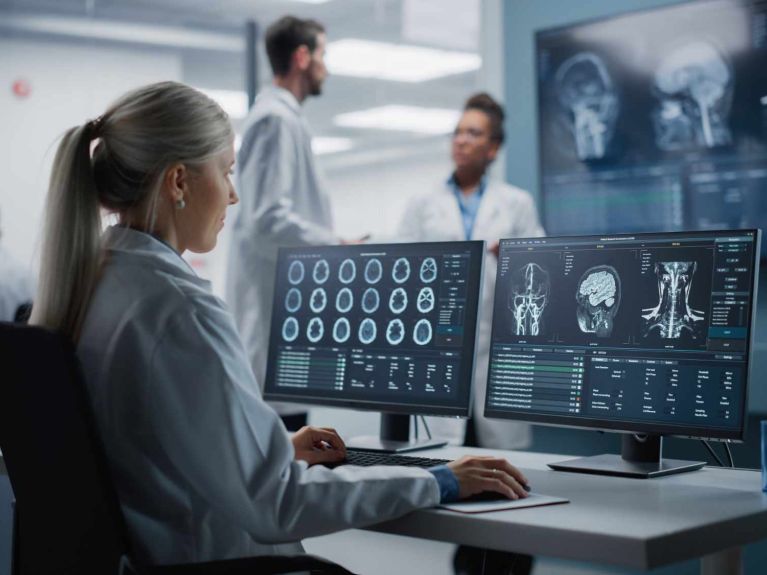Improving therapies with AI
Researchers are working on harnessing vast amounts of data to make advances in medicine using artificial intelligence.

Medical research is focusing strongly on artificial intelligence in order to advance diagnostics and therapy by taking advantage of enormous quantities of data. Genetic analyses and digital storage of findings and measurements generate countless data that hold important and often undiscovered insights and connections. In view of the volume of data, however, it is usually only possible to find the crucial information with the help of learning computers – i.e. artificial intelligence (AI). German research institutions, too, are devoting themselves to this future-oriented field of medicine with a number of major projects and collaborations.
AI research at the German Cancer Research Centre
At the German Cancer Research Centre (DKFZ) in Heidelberg, for example, teams of researchers are working on numerous projects, for example on using artificial intelligence to analyse images from computer-tomography (CT) and magnetic-resonance-imaging (MRI) scans, and thus to provide important assistance to doctors. DKFZ researchers have also joined forces with colleagues from the European Molecular Biology Laboratory and the University of Heidelberg to form an AI research unit, which in turn is part of the European Laboratory for Learning and Intelligent Systems (ELLIS).
Ways of achieving personalized medicine
At the International Leibniz Future Laboratory for Artificial Intelligence in Hanover, one focus is on developing AI solutions for personalized medicine. The aim is to use AI to develop therapies that are tailored to individual patients and therefore especially effective – e.g. to improve the treatment of breast cancer.
At Forschungszentrum Jülich, scientists contribute their expertise in the fields of brain structure and function as well as supercomputing and simulation to the Human Brain Project (HBP), an international research network that seeks to understand the brain in all its complexity. They want to find out how we think, how consciousness is formed, a personality, memory, intelligence, diseases. This requires an analysis of the processes going on in the approximately 100 billion nerve cells – AI is the key to penetrating this complexity step by step.
Dieses YouTube-Video kann in einem neuen Tab abgespielt werden
YouTube öffnenThird party content
We use YouTube to embed content that may collect data about your activity. Please review the details and accept the service to see this content.
Open consent formYou would like to receive regular information about Germany? Subscribe here:



